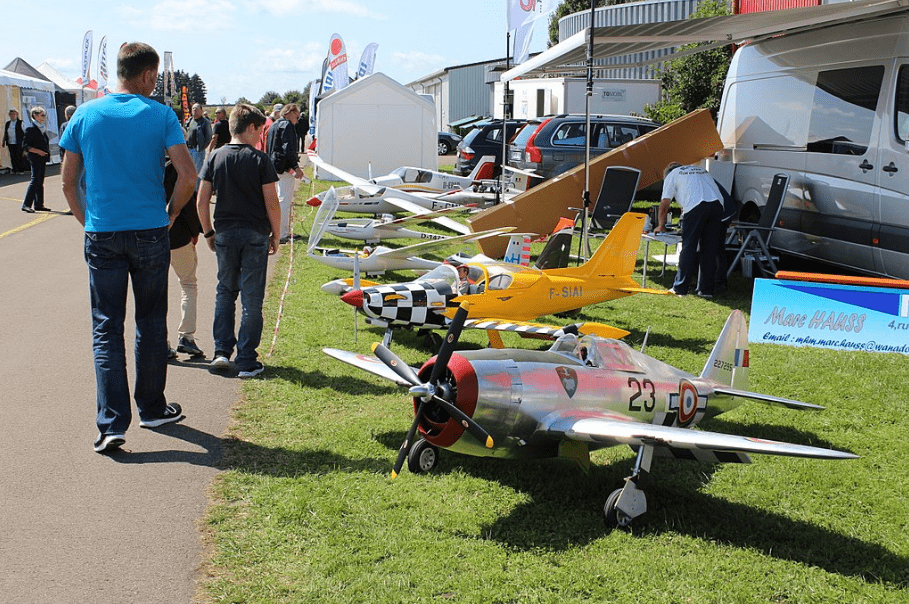Aeromodeling generally involves the design and development of small-sized flying objects and performing aerobatics. It’s a thrilling and fun activity, which can help anyone better understand science and engineering concepts, such as aerodynamics, electronics, control mechanisms, and the principles of flight.
If you’re an engineering student, honing your skills in this area can be valuable, especially if you want to pursue a career in aeronautical and aviation engineering. You can start participating in various training workshops, which can help improve your expertise apart from your curriculum. So, read on below and discover the top aeromodelling training workshop you should be attending.
RC Aircraft Design Workshop
Nothing can beat the sense of fulfillment of designing your own aircraft and flying it into the sky. This workshop will provide you with the essential concepts of aircraft functioning and design, including aircraft systems, stability, control, basics of aeronautics and flight, and electrical instrumentation. With all these learnings, you’ll be able to design and build your flying machine from scratch.
Sphere Drone Workshop
Sphere drones are ball-like shapes, single rotor UAVs (unmanned aerial vehicles) used in different fields. It’s renowned for its spherical shield, which allows it to fall on the ground or knock into walls without taking damage. This workshop will help you obtain practical insights into these impressive spheres drones and the structure and engineering principles behind their fabrication.
Ornithopter Workshop
Ornithopters are aircraft that resemble the flight of birds. These devices flap their wings, unlike other aero-models that are powered by motors and engines. It’s an exciting workshop as you can learn how birds fly and their structure, the history and parts of ornithopters, and the basics of aeronautics.
Delta Wing Workshop
Delta Wing warplanes were widely used during World War II, characterized by triangle-shaped wings. Many decades after the end of global conflict, the design and configuration are still being used and developed today. Most present-day combat aircraft still feature either a full delta or tailless delta design. This workshop will learn how to build an RC Delta yourself and discover various engineering principles encompassing them.
Glider Workshop
Gliders are one of the simplest types of aircraft that you can create sans the complicated accessories. Thus, it’s also one of the best workshops to take as a stepping stone to the fascinating world of aeromodelling. In this workshop, you will be able to create both non-powered and powered gliders. The former can be exciting, as it will allow you to learn about flight and aerodynamics in their most basic forms, solely depending on thermals or wind to keep your glider airborne.
Quadcopter or Tricopter Workshop
Quadcopter and Tricopter workshops will introduce you to helicopters. These flying machines use different mechanisms than gliders and airplanes, further enriching your knowledge about aeromodelling and aerodynamics. These UAVs drones are popular in various applications, from surveillance, law enforcement, research, photography to specific commercial uses. It also integrates programming, GPS, and gyro stabilization, making it an all-around workshop that can help you gain a deep understanding of modern aircraft systems.
RC Biplane Workshop
This workshop will somehow bring you back in history as it entails the study of RC biplanes. The world’s first successful airplane, the Wright Flyer, is a biplane invented by Wright Brothers in 1903. It became widely used until the 1930s, before the advent of the speedier, more efficient monoplane. While biplanes are no longer produced commercially nowadays, taking this training will still provide you with more understanding of aeromodelling, design algorithms, aeronautical engineering, and electronics.
Final Words
Whichever training workshop you decide to take, it can undoubtedly help you broaden your knowledge and improve your skills related to engineering, while also relishing the fun the hobby can bring. Happy aeromodelling!
